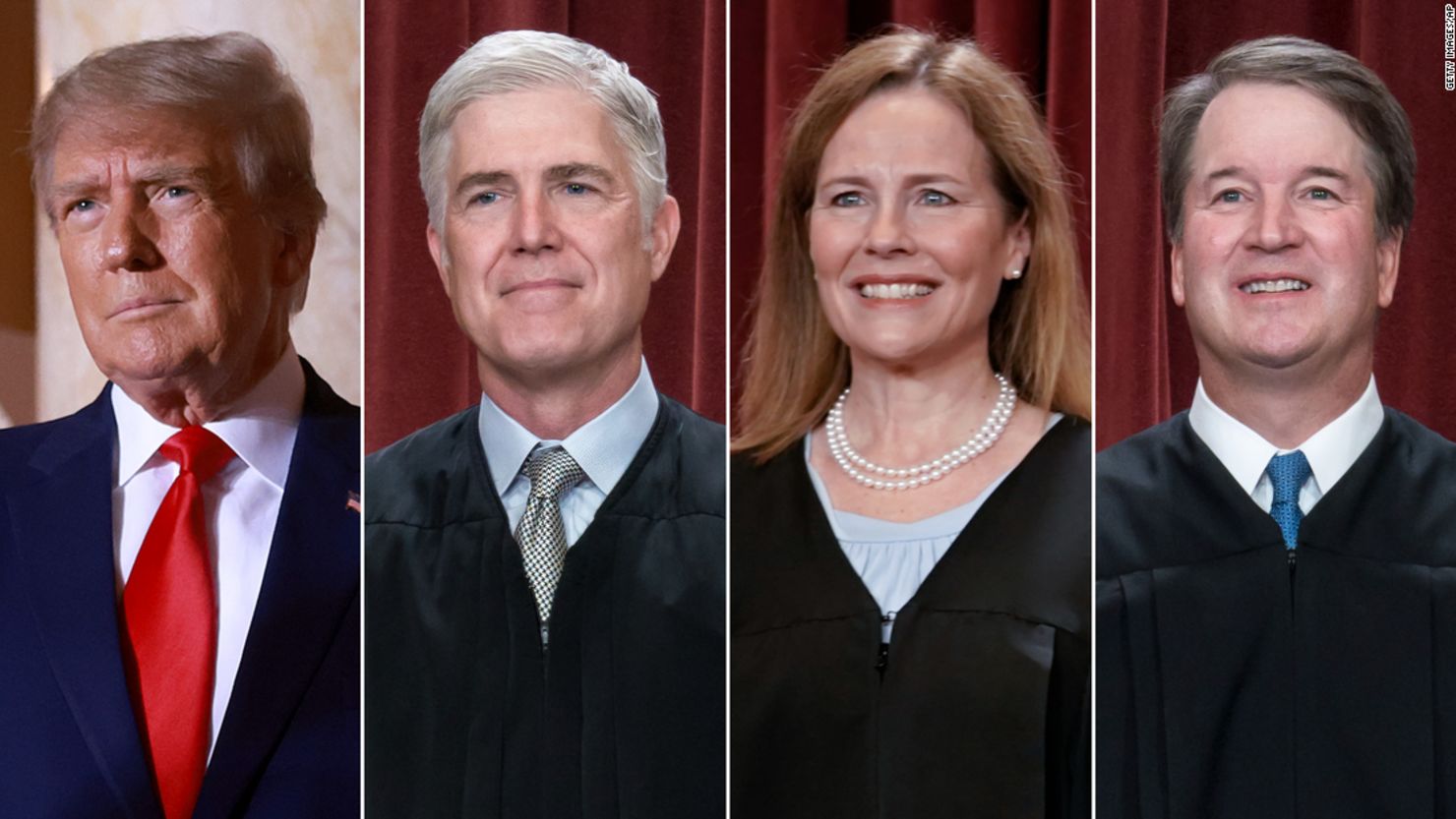A Turning Point in the Border Battle
For years, Americans have watched activist judges block nearly every attempt to secure the border.
This week, that wall finally cracked — and it cracked hard.
By a 6–3 decision, the U.S. Supreme Court handed President Trump one of his biggest legal wins yet, clearing the way for rapid deportations to third countries and shutting down a lower court order that tried to slow the process.
The ruling doesn’t just change policy.
It changes momentum.
For the first time in years, the Trump administration can move illegal immigrants out of the country without being tied up by endless lawsuits, surprise injunctions, or activist-friendly loopholes.
And the Left is melting down.
What the Case Was Really About
You wouldn’t know it from the headlines, but this case wasn’t about “innocent migrants.”
It centered on individuals who were already flagged for removal — many of them with criminal backgrounds, according to the government’s filings.
The Biden-era system slowed deportations to a crawl.
Trump’s team is trying to restart the engine.
But U.S. District Judge Brian Murphy stepped in last month, demanding that all migrants being deported to third countries remain in U.S. custody until they sat for a special “reasonable fear interview.”
That meant:
-
Delays
-
Lawsuits
-
Appeals
-
And the same bureaucratic gridlock Americans are sick of
The Supreme Court took one look at the situation and said:
No. Not this time.
The 6–3 Split Tells the Whole Story
The ruling broke cleanly along ideological lines:
SUPPORTED THE TRUMP ADMINISTRATION
-
Roberts
-
Alito
-
Thomas
-
Gorsuch
-
Kavanaugh
-
Barrett
DISSENTED
-
Sotomayor
-
Kagan
-
Jackson
This wasn’t subtle.
It was a message:
The days of one federal judge holding up national immigration policy are over.
The Court didn’t erase due process, as Democrats claim.
It simply said the executive branch has the authority — the constitutional authority — to enforce immigration law without being hamstrung at every turn.
Inside the Trump Administration’s Argument
Solicitor General D. John Sauer didn’t mince words.
He told the Court that Judge Murphy’s order was preventing removal of:
“some of the worst of the worst illegal aliens”
Including individuals deported to South Sudan earlier this year — individuals the Biden administration had ignored, and whom activists wanted kept here indefinitely.
The Court agreed:
The executive branch is allowed to move forward.
And the Trump team wasted no time.
Assistant Deputy DHS Secretary Tricia McLaughlin posted one simple message:
“Fire up the deportation planes.”
That line alone will echo from coast to coast.
Activists Outraged — and That’s How You Know It’s a Win
Pro-immigration lawyers warned that the ruling was “horrifying” and would “strip away protections.”
But here’s what that really means:
-
No more endless delaying tactics
-
No more judge-shopping
-
No more loopholes for activist groups
-
No more keeping criminal migrants in the U.S. for months or years
For the American people — especially those living in border and crime-stricken communities — it means something else:
Washington is finally enforcing the law again.
Why This Ruling Matters More Than People Realize
This isn’t just about deporting a few hundred people to third countries.
It sets a precedent:
✔ The Trump administration can move quickly
✔ Judges can’t micromanage foreign transfers
✔ Activist groups can’t stall removals indefinitely
✔ Federal immigration power belongs to the executive
This ruling will likely accelerate deportations across multiple regions — from Central America to Africa to Asia.
And more importantly:
It clears the runway for Trump to fully restore the border policies Biden erased.
This decision is the legal oxygen the administration needed.
Democrats Know the Political Fallout Is Coming
Even before this ruling, polling showed seniors — especially conservatives — overwhelmingly support fast-track deportations for criminal migrants.
Now comes the kicker:
The Biden administration’s border failure created a crisis.
Trump is cleaning it up.
And the Supreme Court just gave him the green light to do it faster.
Democrats know exactly how this looks heading into 2026:
-
Trump enforcing the law
-
The border tightening
-
Criminal migrants being removed
-
Activists screaming about “rights”
-
And voters remembering exactly who opened the floodgates
It’s political disaster for the Left.
Bottom Line
The Supreme Court just delivered a message loud enough for every border town, every sanctuary city, and every federal court to hear:
Immigration law is back.
The Trump administration is in charge.
And the days of activist obstruction are ending.
This ruling is the clearest sign yet that Trump’s second-term agenda is not just moving —
it’s accelerating.

Sarah Mitchell is a bestselling novelist recognized for her insightful and emotionally resonant stories that explore the complexities of human relationships. Originally from Denver, Colorado, Sarah grew up in a family of teachers who nurtured her curiosity and love for storytelling. She studied psychology at Stanford University, where she became fascinated by the intricacies of human behavior—an interest that would later shape her writing career. Sarah’s novels are praised for their nuanced characters, intricate plots, and ability to capture the subtle tensions that define love, friendship, and family ties. Her breakthrough novel, The Spaces Between Us, became an instant bestseller, lauded for its honest portrayal of strained family relationships and the fragile bonds that hold people together. Since then, she has published several works that continue to captivate audiences around the world. Outside of her writing career, Sarah is passionate about mental health advocacy and often partners with organizations to promote awareness and support for those struggling with emotional well-being. Her personal life is quieter—she enjoys hiking in the Colorado mountains, practicing yoga, and spending time with close friends. With each new book, Sarah Mitchell cements her reputation as a writer who illuminates the beauty and struggles of human connection.









